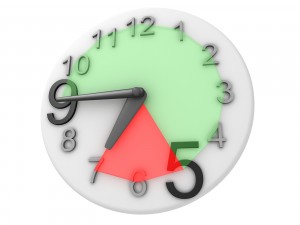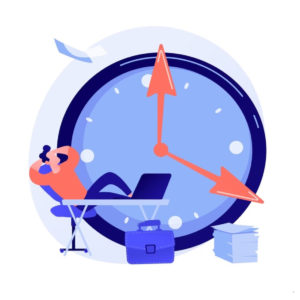
02 Oct Work-Life Imbalance
The Mental Health Connection: How Work-Life Imbalance Can Lead to Stress, Anxiety, and Other Mental Health Issues
The quest for a harmonious balance between work and personal life has never been more crucial. As the lines between professional and personal spaces blur, especially with the rise of remote work, understanding the mental health implications of this imbalance becomes paramount. This article dives into the intricate relationship between work-life imbalance and its potential repercussions on mental health.
What is Work-Life Imbalance?
Work-life imbalance occurs when the demands of one’s job overshadow personal needs and responsibilities or vice versa. This could mean excessive hours at the office, bringing work home regularly, or being unable to disconnect from work-related concerns during personal time. On the flip side, personal issues might intrude into work hours, making it challenging to focus on professional tasks.
Disadvantages of Work-Life Imbalance
The Stress Cascade
When work begins to dominate one’s life, the immediate result is often stress. This isn’t the occasional stress of a tight deadline but a chronic, relentless strain. The body’s stress response, designed to handle short-term threats, isn’t equipped for long-term activation. Over time, chronic stress can lead to a host of health problems, including headaches, digestive issues, sleep disturbances, and a weakened immune system.
Anxiety and the Future
Beyond immediate stress, a persistent work-life imbalance can lead to heightened anxiety. This might manifest as constant worry about future workloads, dread about upcoming projects, or generalized anxiety about job performance. When work concerns start to consume one’s thoughts even during off-hours, it’s a clear sign that the scales of balance are tipped.
Depression and Burnout
If left unchecked, the combination of chronic stress and anxiety can pave the way for depression. Individuals might begin to feel hopeless about ever achieving balance, leading to feelings of sadness, worthlessness, or even guilt. This emotional drain can culminate in burnout—a state of physical, emotional, and mental exhaustion caused by prolonged stress. Burnout can make individuals feel detached, cynical, and resentful, further exacerbating the work-life imbalance.
Impaired Cognitive Function
Chronic stress and its associated mental health issues can impair cognitive functions. This includes difficulty concentrating, making decisions, or even recalling essential information. Such cognitive impairments can further reduce work efficiency, creating a vicious cycle of increasing work hours and decreasing mental well-being.
Strained Personal Relationships
A consistent work-life imbalance can lead to neglect of personal relationships, whether with family, friends, or partners. Over time, this neglect can create feelings of resentment, distance, or misunderstanding. Children might feel their working parents are absent from significant events or moments in their lives, while partners might feel sidelined or undervalued. Friendships can wane when there’s a lack of shared experiences or time spent together. These strained relationships can further contribute to feelings of isolation and loneliness.
Decreased Job Satisfaction and Performance
An imbalanced work-life dynamic can lead to a diminished passion for one’s job. When work becomes the overwhelming focus, even tasks that were once enjoyable can become tedious or burdensome. This decreased job satisfaction can, in turn, lead to reduced performance. Employees might find themselves less motivated, less creative, and less efficient, which can hinder career progression and personal fulfillment.
Loss of Personal Identity and Growth
Continuously prioritizing work over personal life can result in individuals losing touch with their hobbies, passions, and personal growth opportunities outside of their professional roles. This can lead to a feeling of being defined solely by one’s job, which can be limiting and unsatisfying. Without a balanced approach to life, individuals might miss out on experiences that enrich their character, expand their perspectives, or simply bring them joy outside of the workplace.
Rebuilding the Balance
Recognizing the profound impact of work-life imbalance on mental health is the first step towards rectification. Employers can play a pivotal role by promoting a healthy work culture, offering flexible hours, and ensuring that employees take regular breaks. Mental health days, counseling services, and workshops on time management can also be invaluable.
For individuals, setting clear boundaries between work and personal time, practicing mindfulness, seeking therapy, and ensuring regular physical activity can help restore balance and mental well-being.
Conclusion
The intricate dance between work and personal life is a continuous journey, not a destination. As the world of work evolves, so too must our strategies for maintaining balance. By prioritizing mental health and recognizing the signs of imbalance early on, we can foster a life that is both professionally fulfilling and personally enriching.
Also read: Research on work-life balance by National Library of Medicine.




